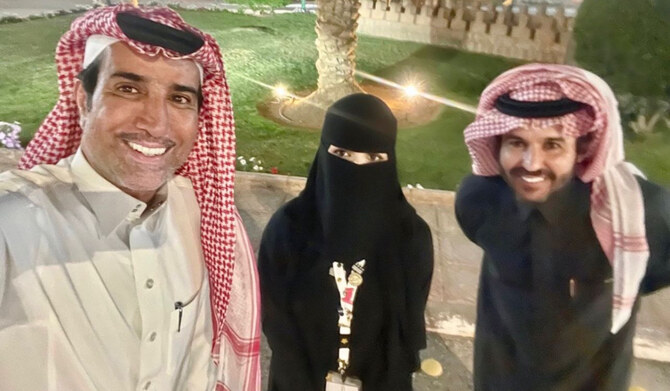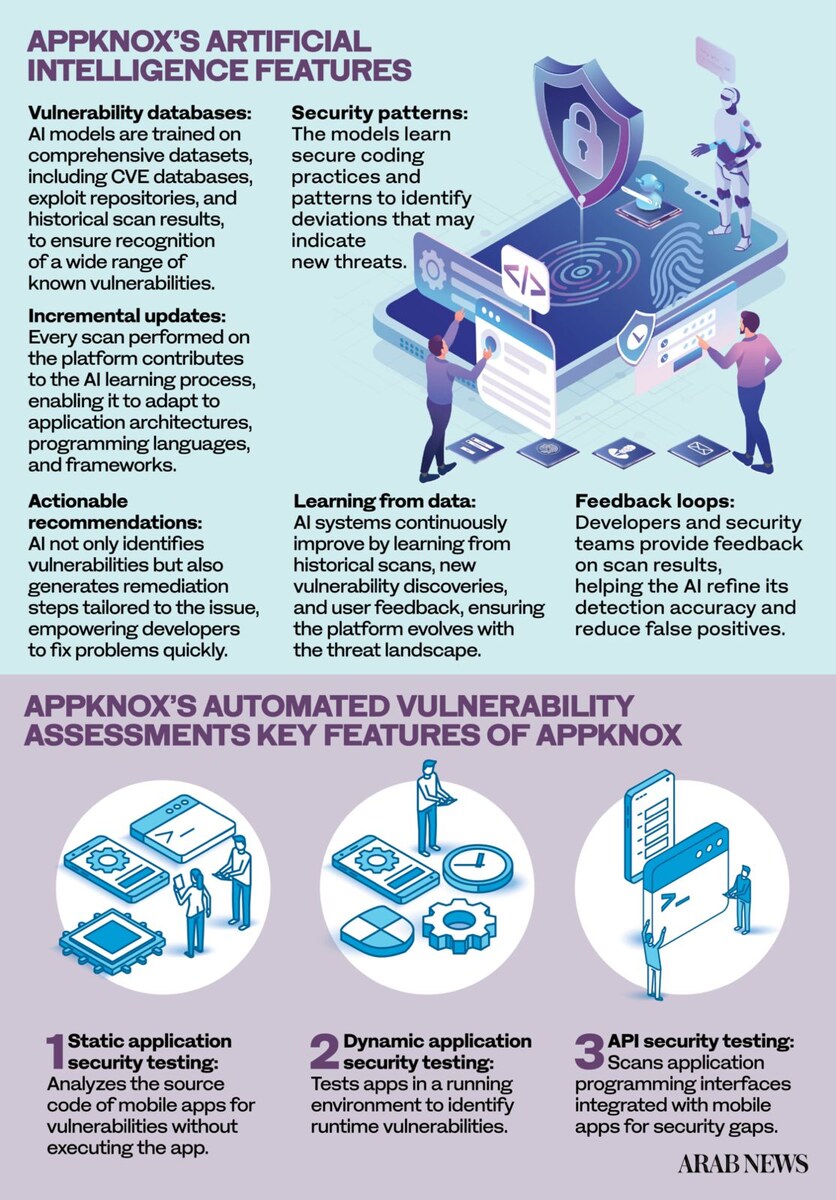RIYADH: A 17-year-old from a small Saudi Arabian town is hoping to become the Kingdom’s first Nobel Prize winner one day.
Sali Al-Harbi, from Al-Qawara in Qassim, has gained national recognition for her work in chemistry and renewable energy. She is also the founder and CEO of the Mulhum Foundation, a youth platform dedicated to community service and raising awareness about volunteer work.

Al-Harbi gained further recognition by becoming the youngest winner of an award for social responsibility, sponsored by Prince Faisal bin Mishaal, for her work with the Mulhum Foundation. (Supplied)
The young scientist’s fascination with chemistry began when she was just 12 years old.
“I was inspired by Marie Curie, the first woman to win the Nobel Prize in chemistry,” Al-Harbi told Arab News. “I aim to be the first Saudi woman to win the Nobel Prize in Chemistry.”
FASTFACTS
• Sali Al-Harbi, from Al-Qawara in Qassim, has gained national recognition for her work in chemistry and renewable energy.
• She is the founder and CEO of Mulhum Foundation, a youth platform dedicated to community service and raising awareness about volunteer work.
Al-Harbi became the youngest trainee at the Prince Sultan Center for Cardiac Medicine and Surgery and later completed five research projects in chemistry and robotics.

“This award recognized my efforts, including the foundation I started, which focuses on volunteering for ages 11 to 25,” she said. (Supplied)
This included developing a photoelectric catalyst that can convert carbon dioxide into renewable energy, which was conducted with King Abdullah University of Science and Technology, King Abdulaziz City for Science and Technology and King Saud University.
Al-Harbi gained further recognition by becoming the youngest winner of an award for social responsibility, sponsored by Prince Faisal bin Mishaal, for her work with the Mulhum Foundation.
“This award recognized my efforts, including the foundation I started, which focuses on volunteering for ages 11 to 25,” she said. “I plan to participate again this year with new projects and aim to secure first place once more.”
Balancing a demanding schedule of studies, research and leadership roles is no mean feat, but Al-Harbi applies the “8x8x8 rule” — her day is divided into eight hours each for work, rest and personal time.
Sali’s dedication has been recognized through numerous awards and honors from various organizations, including the Minister of Education, the Misk Foundation, and the Prince Mohammed bin Salman Foundation.
Her role in the Sheikh Hamdan bin Rashid Award for Excellence in Education, which includes schools across the Gulf Cooperation Council, represents another step in her journey.
“Participating in this award is a significant opportunity for me to showcase my work and contribute to the field of education,” she said. “My research aims to explore innovative methods for renewable energy, aligning with global and local sustainability goals.”
Despite the challenges, Al-Harbi remains steadfast in her pursuit of excellence. She said: “The balance between academics, research, and leadership requires strong time management and perseverance, Staying organized and focused helps me achieve my goals and contribute effectively to my community.”
Her story is just one example of the potential of Saudi youth. Her achievements are an inspiration to others and demonstrate the impact of dedication and hard work.
“My advice to other young people is to seize opportunities, participate in local programs and competitions, develop skills, and build community relationships wherever possible,” she said.

































